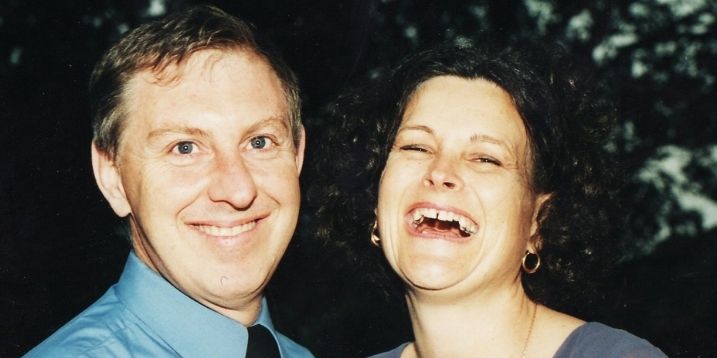
Julie was introduced to advance care planning through her work in aged care. As her family lived through tumultuous life events, she experienced firsthand the certainty and comfort planning ahead can provide. This is her story.
“When I was working as a Learning and Development Coordinator for an aged care organisation in Queensland, I was part of a project training people in how to support others doing advance care planning, said Julie.
I thought it was the most brilliant thing when I first learned about it. It is putting patients back in charge of their choices throughout their health journey. Despite my background in nursing, I had never heard of advance care planning before joining this specific project.
As I was training other people in how to go about it I thought to myself – I should do this too to be familiar with the ins and outs. I went home to my husband, Mark, and asked him what he would want if he was in an accident or if he had a living with a life-limiting condition. I said it to him in a pretty rough humorous way, that’s what we were like together.
We had a lot of laughs and joked back and forth, but we ended up having a great conversation. He had previously suffered ill health due to a heart condition, but at the time he was doing well. I asked about every possible scenario, and he told me in detail about all that he would want in terms of care.”
“Three months later, Mark suddenly dropped into unconsciousness due to a brain bleed. You never think it’s going to happen to you, but it did.
It felt like we had been planning a celebration for his 50th birthday one minute, and then the next minute I’m making a decision about turning off his life support. My daughter was 16 years old and my son was 14 years old. It was an overwhelming experience for all of us.
Knowing his wishes gave me enormous amounts of confidence during the utter horror of what was happening. Setting aside the turmoil I felt emotionally when I talked to the doctors I had absolute confidence that what I was relaying were my husband’s words.
You could tell by the doctors’ reactions that they were relieved to hear that I knew what he wanted, including his wish for organ donation. I don’t like organ donation, but despite that, I wanted to honour his request.
I could answer every question the doctors asked. It was the one thing that I was thankful for during what is one of the worst things you can experience in life. I came out of it thinking that it was going to be okay because I knew what to do.
From our conversation, I knew that he would be more likely to want an intervention if there was a high chance of recovery. He had said that he’d be content with getting back to 60 per cent of his normal capacity if something happened. It was clear to me what needed to be done when the doctor’s said he’d be lucky to get one per cent back. He died on August 13, 2011.”
Talking to the next generation
This experience has made me passionate about advance care planning. It made such a difference to Mark’s life, and later to mine and my children’s life.
A few years after Mark’s death, I was diagnosed with a hole in my heart. I had heart failure and was very sick. By the time this happened, my kids had grown up a bit. My daughter was 18, old enough to be involved in decisions about my treatment if I became seriously ill. Now it was time for me to talk to her about what I would want.
I described what could happen if I went into a coma, what kind of treatments I’d accept if I could get well again and what I didn’t want. She is very confident about my preferences now, and I talk about it with both of my kids.
If the worse thing imaginable happens to me, they have the certainty they need to make decisions about my treatment. I feel I’ve given them one less pain in their lives, and for me, that knowledge gives me peace,” said Julie.
Julie’s advice to health professionals
“It is absolutely relevant and correct for health care professionals to have these conversations - it isn’t just a family activity. That was the first barrier I discovered when I started to teach advance care planning. It’s our job. We know that in the end, someone will have to make those difficult decisions about treatment.”
I think practicing how you’re going to have those conversations makes a difference. When you can present information clearly, it is easier to focus on the person you are talking with. Introducing it correctly is important. I usually ask “Who’s going to speak for you if you can’t tell doctors what you want yourself?” said Julie.
Julie’s advice to individuals
“No matter what, have the conversation with your loved ones about what you want and what’s important to you. Advance care planning provides peace of mind for your family.” When it comes down to it, very few people will pull out a piece of paper that they had prepared in case of an emergency. Despite that, you still have to answer questions. What would you never want done in terms of care and treatment? Which kinds of treatments are you happy with? If something were to happen, you know that what happens to your body is what you would have wanted,” said Julie.